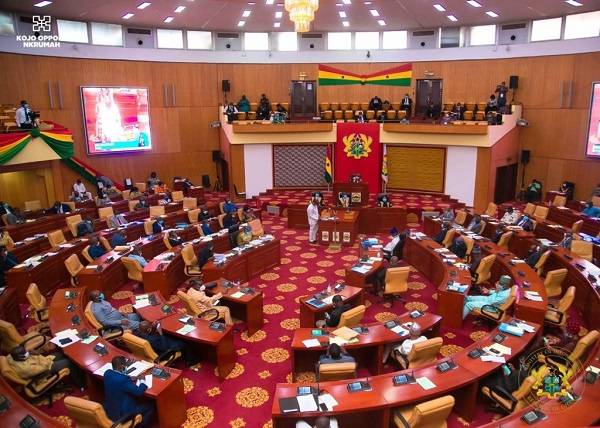In a decisive move that reverberated through the chambers of Ghana's Parliament, the approval of the Government's 2024 Budget has finally been confirmed. The seemingly unending tug-of-war between the Majority and Minority sides culminated in a vote that showcased a razor-thin margin. With a tally of 138 votes in favor and 136 against, the contentious budget crossed the threshold for approval.
The significance of this decision was underscored by the absence of a single member from the Minority side, which notably impacted the staunch opposition to the budget during its preliminary stages. The vacuum left by this absentee reverberated in the final count, tilting the scales in favor of the Majority.
Speaker of Parliament, Rt. Hon. Alban Bagbin, presided over this pivotal moment, officially announcing the outcome following what can only be described as a grueling journey to reach a resolution. The victory for the budget was hard-fought, with impassioned debates and deliberations characterizing the lead-up to this crucial verdict.
The sigh of relief that accompanied the approval was palpable, particularly for the Finance Minister, Ken Ofori Atta, who can now proceed with implementing the proposed fiscal measures outlined in the budget. This landmark decision serves as a green light for the government to initiate various economic plans and projects slated for the upcoming fiscal year.
Ghana's political landscape is emblematic of the closely contested nature of the parliament, where the balance of power teeters precariously between the two opposing sides. The near parity in numerical strength further accentuates the significance of each vote and the intensity of the debates that precede pivotal decisions like this one.
The approved budget, a crucial document shaping the country's economic trajectory for the forthcoming year, will not only allocate funds but also serve as a blueprint for developmental initiatives across various sectors. It is expected to address critical issues, ranging from infrastructure development to social welfare programs, aiming to foster sustainable growth and equitable progress for all citizens.
However, the razor-thin margin of approval reflects the deep-seated divisions and contrasting ideologies prevalent within Ghana's political spectrum. The implications of this narrow passage underscore the need for dialogue, cooperation, and consensus-building among parliamentarians to navigate future legislative challenges effectively.
As the government gears up to set its plans into motion, the eyes of the nation remain fixated on the outcomes and impact of the approved budget. The delicate balance in parliament mandates a proactive approach to governance, one that recognizes the necessity of collaboration and negotiation to propel Ghana's developmental agenda forward.
In conclusion, the approval of the 2024 Budget by Ghana's Parliament, though hard-won, signifies the beginning of a new chapter in the nation's economic roadmap. Yet, the closeness of the vote underscores the imperative for unity and cooperation in steering the country towards a future of prosperity and growth.




No comments yet
Be the first to share your thoughts!